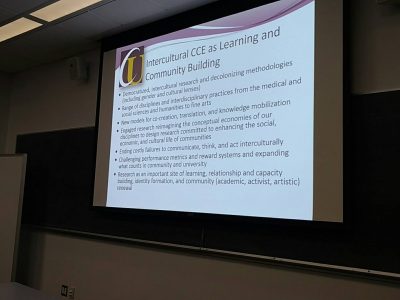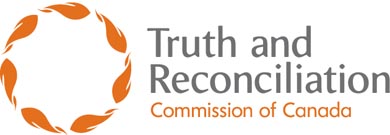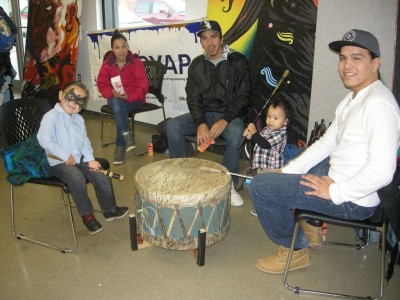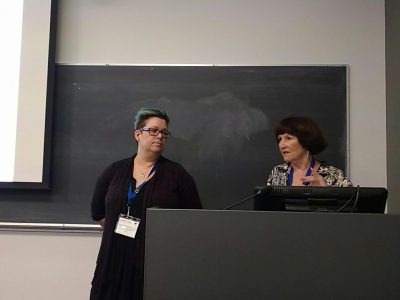by Leah Piehler, CFICE Volunteer
June 21st is National Aboriginal Day in Canada. Established in 1996, National Aboriginal Day is about recognizing and celebrating the unique and diverse heritage, cultures and contributions of First Nations, Inuit and Métis peoples.
In order to fully recognize and appreciate Indigenous peoples, CFICE Poverty Reduction researchers say it’s vital to have true reconciliation.
The Office of the Treaty Commissioner describes reconciliation as a process of recognizing the harm that has occurred in the past to build trust and work towards a healthier future.
In Phase I of the project, CFICE’s Poverty Reduction Hub supported research that looked at the effectiveness of community campus engagement at the Station 20 West Community Enterprise Centre in Saskatoon, Sask. Station 20 West works in collaboration with a large Indigenous community, among other groups of the Saskatoon population. The centre is designed to improve social and economic equity, increase food security and reduce income and health disparities in inner-city Saskatoon through a collaborative, community-based approach.
A path to true reconciliation
 At the C2UExpo 2017 conference, on May 4th, 2017, a full house of community members, academics, and policy professionals listened as CFICE affiliates Colleen Christopherson-Cote, Saskatoon Poverty Reduction Partnership coordinator, and Dr. Isobel Findlay, co-director of the Community-University Institute for Social Research at the University of Saskatchewan, presented parts of this research.
At the C2UExpo 2017 conference, on May 4th, 2017, a full house of community members, academics, and policy professionals listened as CFICE affiliates Colleen Christopherson-Cote, Saskatoon Poverty Reduction Partnership coordinator, and Dr. Isobel Findlay, co-director of the Community-University Institute for Social Research at the University of Saskatchewan, presented parts of this research.
Their 15-minute presentation On a Path of True Reconciliation: Investing in a Poverty-Free Saskatoon highlighted how principles of truth and reconciliation can strengthen community-campus partnerships and facilitate effective approaches to poverty reduction.
With only 15 minutes to discuss big issues and rigorous research, Christopherson-Cote and Findlay focussed on a few key messages to highlight the importance of reconciliation for the audience.
According to Findlay, this meant highlighting the point that, “Without reconciliation, there can be no end to poverty.”
“Ending poverty is about ending discrimination, ending the colonial legacy and ending systemic barriers that produce and reproduce poverty in particular communities.”
Findlay explains that these barriers are a huge burden for indigenous communities.
They discussed the economic costs of not having reconciliation by including, “facts and figures of the costs to the justice system, to the education system, losses to the economy, and costs of use of social services” caused by the ongoing colonial legacy and intergenerational violence and trauma, explains Findlay. This was done not to obscure the social, cultural and health consequences, but to highlight that sustainable futures depend on ending systemic barriers, and focussing efforts toward true reconciliation.
For Christopherson-Cote and Findlay, true reconciliation is about being authentic, committed and genuine.
“I think we potentially have more harm done if it’s not genuine,” says Christopherson-Cote.
Building reconciliation into poverty reduction efforts
To incorporate reconciliation into poverty reduction work, Christopherson-Cote and Findlay note that it’s necessary to include and value indigenous voices, experiences and knowledge.
Christopherson-Cote and her team at the Saskatoon Poverty Reduction Partnership have created a guide for community groups and employers working to reduce poverty to include the voices of those with lived experiences of poverty. The document is not indigenous-specific and can be applied to all marginalized groups.
“Including people with lived experience of poverty is a critical piece,” explains Christopherson-Cote. “If you leave them out then you’re essentially making things for people without their input, and that isn’t the best way to do business.”
Christopherson-Cote also notes that reading the entirety of Truth and Reconciliation Commission of Canada’s Calls to Action is an obligation for those working in poverty reduction in Canada.
 Findlay and Christopherson-Cote both agree that reconciliation is key to strengthening community-campus partnerships, and that the ability to learn from the stories and first-hand experiences of community members is an invaluable benefit of community-campus-based research.
Findlay and Christopherson-Cote both agree that reconciliation is key to strengthening community-campus partnerships, and that the ability to learn from the stories and first-hand experiences of community members is an invaluable benefit of community-campus-based research.

